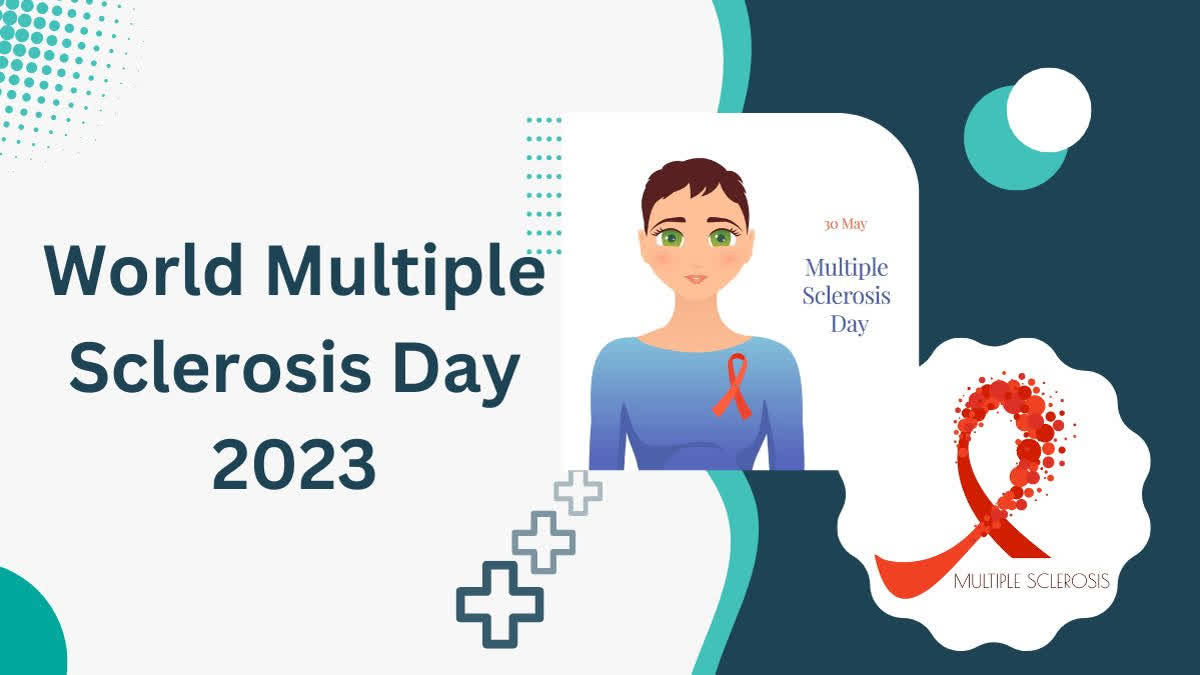Hyderabad: Our body has the ability to heal itself through various diseases thanks to our immune system. However, in some cases of this healing process, the body starts to cause damage to itself. This condition is known as an autoimmune disease in which the body's immune system starts attacking our own healthy cells, which can lead to the development of various diseases. Multiple sclerosis is one such chronic disease that can cause problems from the brain-spinal cord to the optic nerve.
Multiple Sclerosis, or MS, occurs when our immune system attacks Myelin, a membrane around the nerve cells. Without this outer covering, our nerves can be damaged, which can cause communication problems between the brain and the body. By the end of 2023, 2.9 million people will be infected with the disease. Therefore, World Multiple Sclerosis Day is observed on May 30 to raise awareness about this disease around the world.
Also read:World Digestive Health Day 2023: Healthy Gut From the Start
Multiple Sclerosis affects the Central Nervous System, which consists of the brain and the spinal cord. It can be difficult to predict how multiple sclerosis can affect the body. According to the National Institute for Neurological Disorders and Stroke (NINDS), between 250 and 35 million people in the United States have MS, while some people have mild symptoms. When communication between the brain and other parts of the body is disrupted, patients may lose the ability to see, write, talk or walk. The symptoms of multiple sclerosis are often unexpected. Depending on the part of the nervous system affected, the patient may have a variety of problems:
- Nerve damage causes muscle weakness.
- Prickling sensations are some of the earliest symptoms of MS and can affect the face, hands and feet.
- Shock-like sensations while moving the neck, also known as the Lhermitte's sign.
- Difficulty in urinating, or feelings of frequent or sudden urination.
Scientists are still unaware of what exactly causes MS. The disease is usually diagnosed in people aged 20-40 years. According to research, the risk may be twice as high in women as in men. Smokers are more likely to develop MS, but there are clearly other factors that need to be considered:
- Autoimmune disorders.
- Recurrent infections by infectious agents such as viruses.
- Environmental or genetic factors.
Multiple sclerosis cannot be completely prevented, but increasing vitamin D absorption through food or supplements, avoiding smoking and getting enough sleep can help reduce the risk of multiple sclerosis. Some studies have shown that exposing infants to Epstein-Barr Virus may provide some immunity against MS, but current societal norms do not allow such testing. Current treatments for multiple sclerosis may include steroids, treatment of neurological symptoms, physiotherapy and speech and language therapy.
